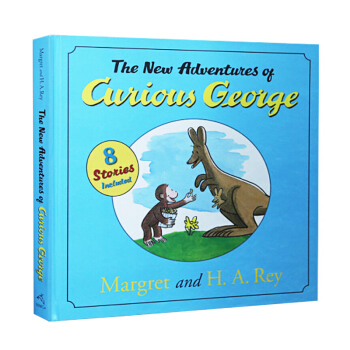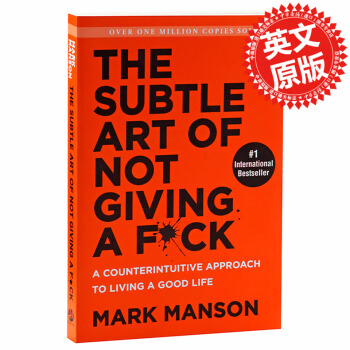![The Tell-Tale Heart 泄密的心和其他作品 [平装]](https://pic.windowsfront.com/19017156/rBEQWVE0SzoIAAAAAAL-NU_Zgl8AABauQAi_BAAAv5N374.jpg)

具体描述
内容简介
Edgar Allan Poe remains the unsurpassed master of works of mystery and madness in this outstanding collection of Poe's prose and poetry are sixteen of his finest tales, including "The Tell-Tale Heart", "The Murders in the Rue Morgue", "The Fall of the House of Usher," "The Pit and the Pendulum," "William Wilson," "The Black Cat," "The Cask of Amontillado," and "Eleonora". Here too is a major selection of what Poe characterized as the passion of his life, his poems - "The Raven," "Annabel Lee," Ulalume," "Lenore," "The Bells," and more, plus his glorious prose poem "Silence - A Fable" and only full-length novel, The Narrative of Arthur Gordon Pym.作者简介
In his short, troubled life Edgar Allan Poe originated the mystery story, brought new psychological depth to the tale of horror, and made inimitable contributions to Romantic poetry and literary criticism. Born in Boston in 1809 to itinerant actors, Poe was orphaned as an infant and sent to live with a Richmond merchant, John Allan. Allan sent him to the University of Virginia in 1826, but Poe withdrew because of gambling debts. In 1830, with his first book of poems already published, he entered West Point but was dishonorably discharged the next year. In 1835 Poe was chosen editor of the Southern Literary Messenger. Poe was already established as an author when, in 1845, the publication of "The Raven" made him famous. He began to lecture, engaged in a celebrated feud with Longfellow, and became sole proprietor of his own magazine, Broadway Journal. But in 1846 the magazine went bankrupt, and in 1847, after years of suffering, Poe's wife died of consumption. His ill health and drinking worsened. In October 1849 he was found semiconscious outside a polling place in Baltimore; a few days later he died without regaining consciousness.Ignored for the most part by his countrymen, he was idolized by the French Symbolists, who thought of him as the first modern poet and helped to win him the recognition that is now his.
精彩书摘
The Tell-Tale HeartTRUE!--NERVOUS--very, very dreadfully nervous I had been and am! but why will you say that I am mad? The disease had sharpened my senses--not destroyed--not dulled them. Above all was the sense of hearing acute. I heard all things in the heaven and in the earth. I heard many things in hell. How, then, am I mad? Hearken! and observe how healthily--how calmly I can tell you the whole story.
It is impossible to say how first the idea entered my brain; but once conceived, it haunted me day and night. Object there was none. Passion there was none. I loved the old man. He had never wronged me. He had never given me insult. For his gold I had no desire. I think it was his eye! yes, it was this! He had the eye of a vulture--a pale blue eye, with a film over it. Whenever it fell upon me, my blood ran cold; and so by degrees--very gradually--I made up my mind to take the life of the old man, and thus rid myself of the eye forever.
Now this is the point. You fancy me mad. Madmen know nothing. But you should have seen me. You should have seen how wisely I proceeded--with what caution--with what foresight--with what dissimulation I went to work!
I was never kinder to the old man than during the whole week before I killed him. And every night, about midnight, I turned the latch of his door and opened it--oh, so gently! And then, when I had made an opening sufficient for my head, I put in a dark lantern, all closed, closed, so that no light shone out, and then I thrust in my head. Oh, you would have laughed to see how cunningly I thrust it in! I moved it slowly--very, very slowly, so that I might not disturb the old man's sleep. It took me an hour to place my whole head within the opening so far that I could see him as he lay upon his bed. Ha!--would a madman have been so wise as this? And then, when my head was well in the room, I undid the lantern cautiously--oh, so cautiously--cautiously (for the hinges creaked)--and I undid it just so much that a single thin ray fell upon the vulture eye. And this I did for seven long nights--every night just at midnight--but I found the eye always closed; and so it was impossible to do the work; for it was not the old man who vexed me, but his Evil Eye. And every morning, when the day broke, I went boldly into the chamber, and spoke courageously to him, calling him by name in a hearty tone, and inquiring how he had passed the night. So you see he would have been a very profound old man, indeed, to suspect that every night, just at twelve, I looked in upon him while he slept.
Upon the eighth night I was more than usually cautious in opening the door. A watch's minute hand moves more quickly than did mine. Never before that night had I felt the extent of my own powers--of my sagacity. I could scarcely contain my feelings of triumph. To think that there I was, opening the door, little by little, and he not even to dream of my secret deeds or thoughts. I fairly chuckled at the idea; and perhaps he heard me; for he moved on the bed suddenly, as if startled.
Now you may think that I drew back--but no. His room was as black as pitch with the thick darkness (for the shutters were close fastened, through fear of robbers), and so I knew that he could not see the opening of the door, and I kept pushing it on steadily, steadily.
I had my head in, and was about to open the lantern, when my thumb slipped upon the tin fastening, and the old man sprang up in the bed, crying out--"Who's there?"
I kept quite still and said nothing. For a whole hour I did not move a muscle, and in the meantime I did not hear him lie down. He was still sitting up in the bed listening;--just as I have done, night after night, hearkening to the death watches in the wall.
Presently I heard a slight groan, and I knew it was the groan of mortal terror. It was not a groan of pain or of grief--oh no!--it was the low stifled sound that arises from the bottom of the soul when overcharged with awe. I knew the sound well. Many a night, just at midnight, when all the world slept, it has welled up from my own bosom, deepening, with its dreadful echo, the terrors that distracted me. I say I knew it well. I knew what the old man felt, and pitied him, although I chuckled at heart. I knew that he had been lying awake ever since the first slight noise, when he had turned in the bed. His fears had been ever since growing upon him. He had been trying to fancy them causeless, but could not. He had been saying to himself--"It is nothing but the wind in the chimney--it is only a mouse crossing the floor," or "it is merely a cricket which has made a single chirp." Yes, he has been trying to comfort himself with these suppositions; but he had found all in vain. All in vain; because Death, in approaching him, had stalked with his black shadow before him, and enveloped the victim. And it was the mournful influence of the unperceived shadow that caused him to feel--although he neither saw nor heard--to feel the presence of my head within the room.
When I had waited a long time, very patiently, without hearing him lie down, I resolved to open a little--a very, very little crevice in the lantern. So I opened it--you cannot imagine how stealthily, stealthily--until, at length, a single dim ray, like the thread of the spider, shot from out the crevice and fell full upon the vulture eye.
It was open--wide, wide open--and I grew furious as I gazed upon it. I saw it with perfect distinctness--all a dull blue, with a hideous veil over it that chilled the very marrow in my bones; but
I could see nothing else of the old man's face or person: for I had directed the ray as if by instinct, precisely upon the damned spot.
And now have I not told you that what you mistake for madness is but over-acuteness of the senses?--now, I say, there came to my ears a low, dull, quick sound, such as a watch makes when enveloped in cotton. I knew that sound well too. It was the beating of the old man's heart. It increased my fury, as the beating of a drum stimulates the soldier into courage.
But even yet I refrained and kept still. I scarcely breathed. I held the lantern motionless. I tried how steadily I could maintain the ray upon the eye. Meantime the hellish tattoo of the heart increased. It grew quicker and quicker, and louder and louder every instant. The old man's terror must have been extreme! It grew louder, I say, louder every moment!--do you mark me well? I have told you that I am nervous: so I am. And now at the dead hour of the night, amid the dreadful silence of that old house, so strange a noise as this excited me to uncontrollable terror. Yet, for some minutes longer I refrained and stood still. But the beating grew louder, louder! I thought the heart must burst. And now a new anxiety seized me--the sound would be heard by a neighbor! The old man's hour had come! With a loud yell, I threw open the lantern and leaped into the room. He shrieked once--once only. In an instant I dragged him to the floor, and pulled the heavy bed over him. I then smiled gaily, to find the deed so far done. But, for many minutes, the heart beat on with a muffled sound. This, however, did not vex me; it would not be heard through the wall. At length it ceased. The old man was dead. I removed the bed and examined the corpse. Yes, he was stone, stone dead. I placed my hand upon the heart and held it there many minutes. There was no pulsation. He was stone dead. His eye would trouble me no more.
If still you think me mad, you will think so no longer when I describe the wise precautions I took for the concealment of the body. The night waned, and I worked hastily, but in silence. First of all I dismembered the corpse. I cut off the head and the arms and the legs.
I then took up three planks from the flooring of the chamber, and deposited all between the scantlings. I then replaced the boards so cleverly, so cunningly, that no human eye--not even his--could have detected any thing wrong. There was nothing to wash out--no stain of any kind--no blood-spot whatever. I had been too wary for that. A tub had caught all--ha! ha!
When I made an end of these labors, it was four o'clock--still dark as midnight. As the bell sounded the hour, there came a knocking at the street door. I went down to open it with a light heart--for what had I now to fear? There entered three men, who introduced themselves, with perfect suavity, as officers of the police. A shriek had been heard by a neighbor during the night: suspicion of foul play had been aroused; information had been lodged at the police office, and they (the officers) had been deputed to search the premises.
I smiled,--for what had I to fear? I bade the gentlemen welcome. The shriek, I said, was my own in a dream. The old man, I mentioned, was absent in the country. I took my visitors all over the house. I bade them search--search well. I led them, at length, to his chamber. I showed them his treasures, secure, undisturbed. In the enthusiasm of my confidence, I brought chairs into the room, and desired them here to rest from their fatigues, while I myself, in the wild audacity of my perfect triumph, placed my own seat upon the very spot beneath which reposed the corpse of the victim.
The officers were satisfied. My manner had convinced them. I was singularly at ease. They sat, and while I answered cheerily, they chatted of familiar things. But, ere long, I felt myself getting pale and wished them gone. My head ached, and I fancied a ringing in my ears: but still they sat and still chatted. The ringing became more distinct:--it continued and became more distinct: I talked more freely to get rid of the feeling: but it continued and gained definitiveness--until at length, I found that the noise was not within my ears.
No doubt I now grew very pale;--but I talked more fluently, and with a heightened voice. Yet the sound increased--and what could I do? It was a low, dull, quick sound--much such a sound as a watch makes when enveloped in cotton. I gasped for breath--and yet the officers heard it no...
用户评价
这本书的震撼之处,在于它对“非理性”的深度挖掘。它没有给我们一个传统的、逻辑清晰的犯罪动机,而是深入到一种近乎本能的、无法解释的憎恶之中。这种对“为什么”的模糊处理,反而比任何详细的解释都更令人不安,因为它触及了人类情感光谱中最原始、最难被理性驯服的部分。我们不得不面对这样一个事实:有时候,最可怕的敌人不是外部的威胁,而是我们自己头脑中那个无法被安抚的“声音”。阅读过程中,我常常需要停下来深呼吸,因为那种紧张感是通过语言的累积性效应产生的,每一次的推进都像是向上攀爬,直到到达那个无法回头的顶峰。它探讨了理性与疯狂之间的那条脆弱界限,以及当界限模糊时,现实如何开始崩塌瓦解。
评分这部作品的文字力量真是令人心悸,那种一步步将你拖入主角内心黑暗深渊的叙事技巧,简直是大师级的。作者对心理状态的描摹细致入微,你仿佛能真切地感受到那种被疑虑和恐惧啃噬的痛苦,那种从内部爆发出的、无法抑制的冲动。每一次呼吸、每一次心跳都被放大,形成一种令人窒息的节奏感,读者完全被吸入到那个狭小、封闭的空间里,与主人公一同经历着这场自我毁灭的旅程。故事的张力构建得极其巧妙,悬念不是靠外部事件堆砌,而是源自于角色内心深处的挣扎与扭曲,这种内在驱动力比任何外部惊悚都更具穿透力。读完之后,那种挥之不去的压抑感和对人性复杂性的深刻反思,久久不能平息。它不仅仅是一个关于谋杀的故事,更是一部对“罪疚感”这一抽象概念的实体化呈现,展现了它如何像毒蛇一样缠绕并最终吞噬一个人的心智。
评分我向来偏爱那种能够迅速建立起强烈氛围的作品,而这一部在氛围营造上达到了登峰造极的水平。作者似乎拥有将环境声光转化为可触摸恐惧的魔力。你仿佛能闻到老房子里尘土的气味,能感觉到深夜里那双眼睛的凝视,尤其是在描述那个“老人的眼睛”时,那种独特的、病态的聚焦感,让人脊背发凉。这种环境的压迫感与主角内心世界的极度紧张形成了完美的镜像关系,使得每一次场景转换都伴随着心跳频率的加速。它不是那种依赖视觉冲击的现代恐怖片,而是通过纯粹的文字构建起一个心理的密室,让你在阅读过程中不由自主地屏住呼吸,生怕自己发出的任何微小声响都会打破这份危险的平衡。
评分初次接触这类经典文学时,我总是担心语言的陈旧会成为阅读的障碍,但这部作品的叙事语言却展现出一种令人惊叹的时代穿透力。它用词精准,句式变化多端,既有古典文学的庄重和韵律感,又不失于对极端情绪的直接捕捉。那种独特的、近乎于偏执的视角,将一个观察者变成了一个被审判者,读者在不知不觉中成为了那个唯一的、也是最苛刻的听众。作者高超的叙事策略在于,他从未直接宣判,而是通过细枝末节的描写——比如对声音的异常敏感、对冷静自持的刻意强调——来悄悄地揭示真相。这种“展示而非告知”的手法,让整个阅读体验充满了智力上的挑战和情感上的共鸣,让人不得不佩服其结构上的精妙布局,每一个词、每一个停顿似乎都是经过深思熟虑的精心安排。
评分这部作品的魅力在于其永恒的讨论价值。它抛出了一个深刻的哲学问题:一个人究竟能欺骗世界多久,更重要的是,能欺骗自己多久?主角在极力表现“正常”和“清醒”的过程中,所暴露出的恰恰是其内心最深处的混乱。这种反讽手法运用得极为高明,让读者始终处于一种预知危险却又无能为力的境地。读完后,我不是简单地惊叹于一个精彩的故事,而是开始审视自己生活中那些被忽略的、微小的“不和谐音”。它像一面棱镜,折射出人性中那些我们倾向于隐藏或否认的部分。它的文字简洁却蕴含巨大能量,这种对简洁力量的完美把握,使得它在众多文学作品中脱颖而出,成为经久不衰的经典。
评分很好,质量不错
评分京东买书真的是巨划算,买了好多书,还没有细看。
评分值得一读的好书。
评分诗歌的格式看起来有些别扭,不知道是不是因为页面大小的原因。
评分内容很好的书,可惜有些磕碰,而且装订裁切有问题,有的页文字太靠里,有些页文字都到页边了。换了也一样,看来这批书都这样。
评分京东买书真的是巨划算,买了好多书,还没有细看。
评分非常不错的一本书
评分好评好评好评好评好评!!!下次还会来买!!!!
评分这样子的质量实在不敢恭维,这刚过完猴年就被京东当猴耍,弄啥咧?
相关图书
本站所有内容均为互联网搜索引擎提供的公开搜索信息,本站不存储任何数据与内容,任何内容与数据均与本站无关,如有需要请联系相关搜索引擎包括但不限于百度,google,bing,sogou 等,本站所有链接都为正版商品购买链接。
© 2026 windowsfront.com All Rights Reserved. 静流书站 版权所有

![Four Tragedies (Bantam Classics)[莎士比亚: 四大悲剧] [平装] pdf epub mobi 电子书 下载](https://pic.windowsfront.com/19017165/9627a3de-a590-4a2f-b7ed-d84a1bbd44e8.jpg)
![Evolution in Action 英文原版 [精装] pdf epub mobi 电子书 下载](https://pic.windowsfront.com/19169256/rBEGEk-zJm4IAAAAAAAkxZsjO5AAAA8MQLftlIAACTd094.jpg)
![Star Wars: A Galactic Pop-up Adventure 星战立体书 [精装] [7-10岁] [星球大战:银河大冒险立体书] pdf epub mobi 电子书 下载](https://pic.windowsfront.com/19277037/rBEHZ1BlPXgIAAAAAACN3Rc1m-EAABjmAIzP_oAAI31519.jpg)








![My Weird School #12: Ms. Todd Is Odd!疯狂学校#12:托德先生很奇怪! [平装] [6-10岁] pdf epub mobi 电子书 下载](https://pic.windowsfront.com/19004074/234e5f14-f471-45f8-b78e-5c2b6bc8dd1d.jpg)
![And I Mean It, Stanley (I Can Read, Level 1)我是认真的,斯坦利 [平装] [4-8岁] pdf epub mobi 电子书 下载](https://pic.windowsfront.com/19004922/550be659N9401e449.jpg)
![Captain Invincible and the Space Shapes[无敌队长和太空里的形状] [平装] [6岁及以上] pdf epub mobi 电子书 下载](https://pic.windowsfront.com/19005087/550bf2a8N9ffd6952.jpg)
![Shark Swimathon[鲨鱼马拉松] [平装] [6岁及以上] pdf epub mobi 电子书 下载](https://pic.windowsfront.com/19005091/550bf2a8Na6299953.jpg)
![Shiloh 塞罗 英文原版 [平装] [8岁及以上] pdf epub mobi 电子书 下载](https://pic.windowsfront.com/19006110/rBEhVlKcJwgIAAAAABOf6BbdInYAAGVegFFnSUAE6AA171.jpg)
![Arthur's Mystery Envelope [平装] [7-9岁] pdf epub mobi 电子书 下载](https://pic.windowsfront.com/19008860/rBEhV1IgdGcIAAAAAAV9QoOAgEoAACqhgMVH0YABX1a684.jpg)
![Baghead纸袋头 英文原版 [平装] [3岁及以上] pdf epub mobi 电子书 下载](https://pic.windowsfront.com/19036296/e2700cdf-2c19-4381-90cd-e0f7d7af643d.jpg)
![Amanda Pig and Her Big Brother Oliver 英文原版 [平装] [7岁及以上] pdf epub mobi 电子书 下载](https://pic.windowsfront.com/19139604/6c0a6a7c-673c-4760-a784-9358ec386fc1.jpg)
![Finding Nemo Read-Along Storybook and CD 海底总动员,附CD [平装] pdf epub mobi 电子书 下载](https://pic.windowsfront.com/19282340/rBEhUlGvCcwIAAAAAADMQj8DmMcAAAABAFdSfcAAMxa441.jpg)